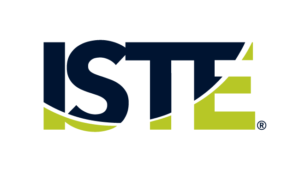 As technology becomes increasingly ubiquitous in students’ lives, it is becoming more important for educators to model and teach how to conduct positive, safe, legal and ethical behaviors online. The challenge of fostering effective digital citizenship is particularly critical as the COVID-19 pandemic pushes millions of students to interact virtually.
As technology becomes increasingly ubiquitous in students’ lives, it is becoming more important for educators to model and teach how to conduct positive, safe, legal and ethical behaviors online. The challenge of fostering effective digital citizenship is particularly critical as the COVID-19 pandemic pushes millions of students to interact virtually.
The DigCitCommit Coalition, formed from organizations focused on promoting best practices in digital citizenship, defines digital citizenship as composed of five competencies — inclusive, informed, engaged, balanced and alert — and several states have begun expanding this definition. In Virginia, state leaders are having critical discussions around fostering student agency through digital citizenship, rather than strictly reinforcing restrictions. Below, James Lane, Virginia’s state superintendent, shares his state’s story and advice for state leaders.
How did Virginia recognize the need to support digital citizenship?
Virginia has strategically invested in building our technical and content infrastructure. All schools meet federal bandwidth goals, and we’ve adjusted policies so that state grants could be used to purchase devices. Platforms like GoOpenVA and Virtual Virginia provide high-quality, free digital content to incorporate into practice.
The conversation around technology is now shifting to ensuring that our investments are truly improving learning, and COVID-19 has accelerated that shift. Although our technical and content infrastructure supported the initial transition to online learning, we’re now turning our attention to helping educators leverage that access — both during closures and when schools reopen — to build skills that students will need for college and beyond.
One critical skill that we’re focused on is digital citizenship. No matter which careers our students choose to take on, they will inevitably engage in some type of interaction through virtual means. Educator capacity is an important piece of this puzzle. It’s everyone’s job to teach digital citizenship and there are multiple ways to shine a spotlight on this important topic.
Which state actions are in motion to help educators teach digital citizenship?
First, we’re re-envisioning our computer technology standards more holistically as digital learning integration standards to drive focus to student competencies, including the ISTE Standards for Students. Second, the Department of Education is building resources for students and educators, including an online course provided through Virtual Virginia. We will also curate high-quality external resources through the department website and GoOpenVA. Lastly, we’ve convened an educator council to provide recommendations around local policies that foster digital citizenship.
How will you ensure that educators can sustainably lead digital citizenship instruction?
This work is very aligned to our state’s current focus on implementing the 5C’s — critical thinking, creative thinking, communication, collaboration and citizenship — which articulate skills that all Virginia graduates should successfully demonstrate. Therefore, our Instructional Technology Resource Teachers (ITRTs) will be instrumental. They will receive training on the new digital learning integration standards and propagate effective practices throughout schools that they work with. The state will also build partnerships with organizations like VSTE, ISTE’s Virginia affiliate, to ensure that teachers have the resources they need.
What advice do you have for other states engaging in this work?
One thing we hope to see as an outcome of COVID-19 is a reinvigoration among leaders to reflect on how they can best facilitate effective digital learning. When it comes to digital citizenship specifically, leaders should first focus on building a shared vision alongside educators, teacher preparation programs, businesses, and policymakers. What does digital citizenship mean to those groups, and how can classrooms lay the foundation for students? That kind of stakeholder engagement will provide a pathway to partnering with the cross-section of organizations who can help build capacity.








